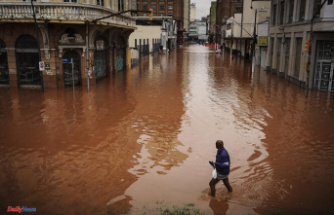Stuttgart (dpa / lsw) - After a long struggle, the state parliament in Stuttgart passed the new climate protection law on Wednesday. This makes Baden-Württemberg the first federal state to enshrine in law concrete targets for reducing greenhouse gases, for example in traffic, buildings and the economy. The country wants to reduce its greenhouse gas emissions by 65 percent by 2030 compared to 1990 and become climate-neutral by 2040 - five years earlier than the federal government decided for Germany. Only as many greenhouse gases may then be emitted as can be bound again.
The amendment interferes with more than two dozen other laws and regulations. Among other things, so-called sector targets are decided - i.e. concrete specifications for areas such as agriculture, road construction and buildings in order to reduce CO2 emissions. According to the law, the respective ministries should be responsible for progress in the sectors. In accordance with federal guidelines, 1.8 percent of the state's land is to be made available for the expansion of wind energy. The state plans at least 0.2 percent for ground-mounted photovoltaics (PV).
A PV obligation is also planned for new buildings and for fundamental roof renovations, as well as for the new construction of larger open parking spaces. State-owned buildings must have solar panels by 2030. In addition, a fictitious price for emissions is calculated for construction measures, purchases and orders from the state. This should reduce the likelihood that particularly climate-damaging offers will be the cheapest in tenders.
The opposition criticized that the law was not transparent enough, that it concealed the costs and was far from sufficient in the fight against climate change.












